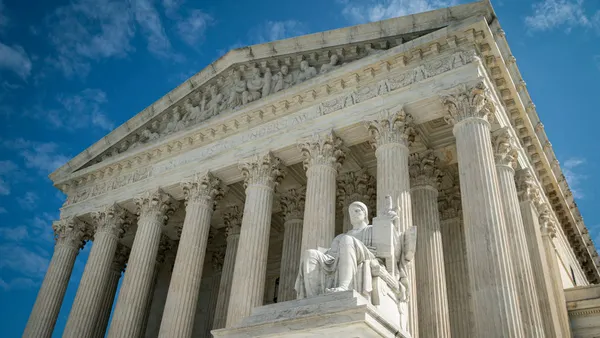Dive Brief:
- A former firefighter cadet for Philadelphia has sued the city, claiming that it failed to accommodate his religious beliefs, in violation of federal law (Lindsay v. City of Philadelphia, No. 2:21-cv-00361 (E.D. Pa., Jan. 27, 2021)).
- The plaintiff, who is Muslim, alleged in his complaint that he was told on his first day of work that he had violated the dress and grooming policy by wearing his pants above his ankles and having a beard. He asked for a religious accommodation and was allowed to have his pants professionally hemmed. However, he said, despite passing an Occupational Safety and Health Administration (OSHA) fit test for his mask, the city fired him, "falsely claiming" that compliance with the grooming policy was necessary to maintain OSHA compliance.
- The plaintiff asked for front pay, compensatory and punitive damages and attorneys’ fees.
Dive Insight:
Title VII of the Civil Rights Act of 1964 forbids discrimination for many reasons, including on the basis of religion, and requires employers to provide a reasonable accommodation for an employee's sincerely held religious beliefs unless doing so would pose an undue hardship for the employer, such as compromising workplace safety.
The U.S. Equal Employment Opportunity Commission (EEOC) has noted that often there will be an available accommodation that permits the employee to adhere to religious practices and permits the employer to avoid undue hardship.
"In most instances, employers are required by federal law to make exceptions to their usual rules or preferences to permit applicants and employees to observe religious dress and grooming practices," according to EEOC's Religious Garb and Grooming in the Workplace: Rights and Responsibilities. However, the federal agency noted, if a grooming or dress practice is a personal preference, it does not come under Title VII's religion protections.
Flexible scheduling, voluntary shift substitutions and exceptions to a uniform or grooming policy are common religious accommodations. Exceptions can include allowing religious dress that an employee engages in for religious reasons, for example, EEOC explained.
Managers and supervisors should be trained that the law may require such an exception and that they should not engage in stereotyping about work qualifications based on religious dress and grooming practices, according to the EEOC. In addition to training, experts have said employers should prioritize a culture of inclusion and respect and watch out for unconscious biases.









